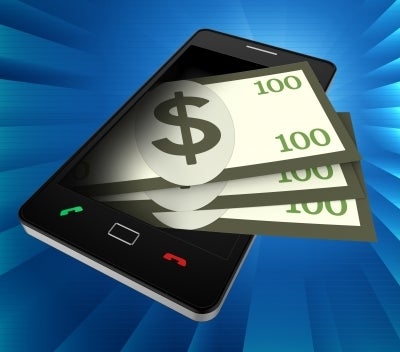Given its origins as a credit union specifically for employees of technology pioneer Digital Equipment Corp., it’s no surprise that Digital Federal Credit Union serves a lot of people who like fancy gadgets. So when new technology comes along, DCU tends to jump on board. Right now, spokesman John LaHair said, that means rolling out Apple Pay to its members by the end of this month.
“Our members are digitally savvy, and more and more are turning to mobile technology than ever before,” LaHair said. “As soon as Apple announced Apple Pay, the phones were ringing.”
Some big national banks have already started offering Apple Pay, and Central Massachusetts-based institutions are following right behind. At the same time, the banks and credit unions are looking at — or actively moving forward with — other mobile-payment technology that serves people who don’t use Apple-branded devices.
The idea of using a smartphone to pay for your purchases is not new. Google — an Apple rival in a number of fields — launched Google Wallet in 2011. The next year, Framingham-based Cumberland Farms started letting drivers pay for their gas at the pump with their phones, using PayPal technology. But, just as it did with MP3 players and Internet-connected phones, Apple seems poised to bring the technology mainstream.
Chuck Bauer, chief technology officer at Natick-based Middlesex Savings Bank, said the bank expects to start offering both Apple Pay and a parallel option for android phone users within four to six months. He said the bank is evaluating the options different companies offer.
“The marketplace is so cluttered with options that it’s difficult to distinguish where to focus,” he said.
Bauer said the fragmented market creates a chicken-and-egg problem. Banks and customers need to know which systems stores will accept, and merchants don’t want to sign up for technology their customers won’t use. Still, Bauer said, it seems clear that people are going to expect banks to deliver the technology soon.
‘Momentum is there’
“I think the momentum is there,” he said. “I think it’s going to continue to build.”
Mychelle Phillips, vice president of operations at Leominster Credit Union, said LCU hopes to get Apple Pay up and running with the next three or four months, then add another option for Android users—most likely Samsung Pay.
“We think that will hit the majority of our members,” she said.
Phillips said the current chaos in the market is part of the reason to start with Apple Pay. The service is only available on the iPhone 6 and 6 Plus, but for the significant number of people who use those phones, it’s a preset option.
Still, Apple Pay’s first few months since launching in the fall have not been smooth. According to a recent survey by market research firm Phoenix, many customers have found that retailers who were supposed to be accepting the payment option were not ready to do so.
How to keep them secure
Meanwhile, security concerns have also emerged.
Brad Fenn, electronic banking technology manager at Whitinsville-based Unibank, said the security issue demonstrates the advantage smaller banks get from adopting technology a bit after their larger counterparts. “We actually let them find the issues,” he said.
In fact, Fenn said, the security problems that have been cropping up aren’t really about Apple Pay, which uses technology widely considered very safe. Instead, the issue is that banks haven’t used proper precautions in signing people up for the program, allowing stolen debit card information to be loaded into the system.
Fenn said he’s already an Apple Pay user himself, having enrolled through a larger institution where he also does business.
“It’s pretty slick,” he said. “You just hold the device out in front of the reader and put your thumb on it, and there it goes.”
Although the number of retailers accepting Apple Pay, or any other mobile payment method, is not huge yet, Fenn expects it to grow quickly.
In addition to Apple Pay, a number of credit unions, including DCU, are adopting a technology called CU Wallet. Tim Smith, CFO of Fitchburg-based Workers Credit Union, said the service is attractive in part because it’s powered by Paydiant Inc., which already works with a network of about 80 merchants. Paydiant is being acquired by PayPal, which could help it become a major player in the mobile payments market.
Smith said Workers is focusing on CU Wallet and Apple Pay for now, but isn’t ruling out other options.
“It’s kind of the Wild West right now,” he said. “Do I know what’s going to happen? I have no idea. So our strategy is to basically be part of everything.” n

